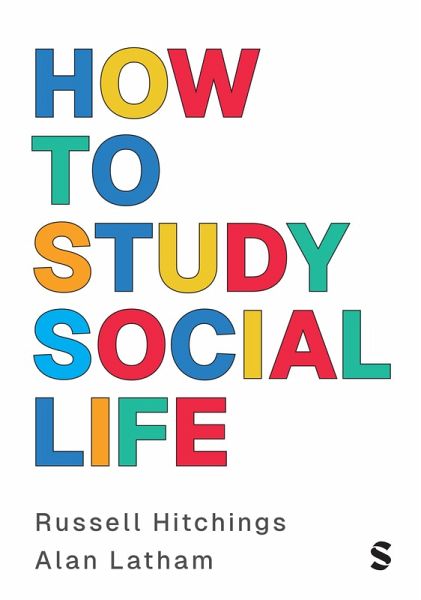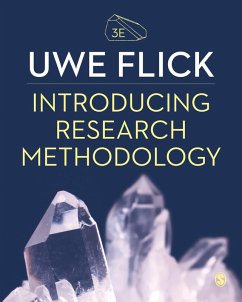
How to Study Social Life (eBook, ePUB)
Versandkostenfrei!
Sofort per Download lieferbar
81,95 €
inkl. MwSt.
Weitere Ausgaben:

PAYBACK Punkte
41 °P sammeln!
Do you want to study what people do, the things they say, or what they think? This book offers a lively and questioning account of the essential elements of social research, from defining your research purpose to producing the right output for your audience.Fostering inquisitiveness and ingenuity and drawing on lots of examples and experiences, it will inspire you to think afresh about the various things you might do as a social researcher.It will also: Reveal the lived realities of research, sharing honest and illuminating stories along the way; Draw on plenty of past exercises with student...
Do you want to study what people do, the things they say, or what they think?
This book offers a lively and questioning account of the essential elements of social research, from defining your research purpose to producing the right output for your audience.
Fostering inquisitiveness and ingenuity and drawing on lots of examples and experiences, it will inspire you to think afresh about the various things you might do as a social researcher.
It will also:
Original, engaging and candid, this book will help any undergraduate or postgraduate navigate the dynamic and challenging landscape of social research with confidence and creativity.
This book offers a lively and questioning account of the essential elements of social research, from defining your research purpose to producing the right output for your audience.
Fostering inquisitiveness and ingenuity and drawing on lots of examples and experiences, it will inspire you to think afresh about the various things you might do as a social researcher.
It will also:
- Reveal the lived realities of research, sharing honest and illuminating stories along the way;
- Draw on plenty of past exercises with students to consider how different activities work
- Demystify the process so you can think for yourself about how to do effective projects.
Original, engaging and candid, this book will help any undergraduate or postgraduate navigate the dynamic and challenging landscape of social research with confidence and creativity.
Dieser Download kann aus rechtlichen Gründen nur mit Rechnungsadresse in A, D ausgeliefert werden.













